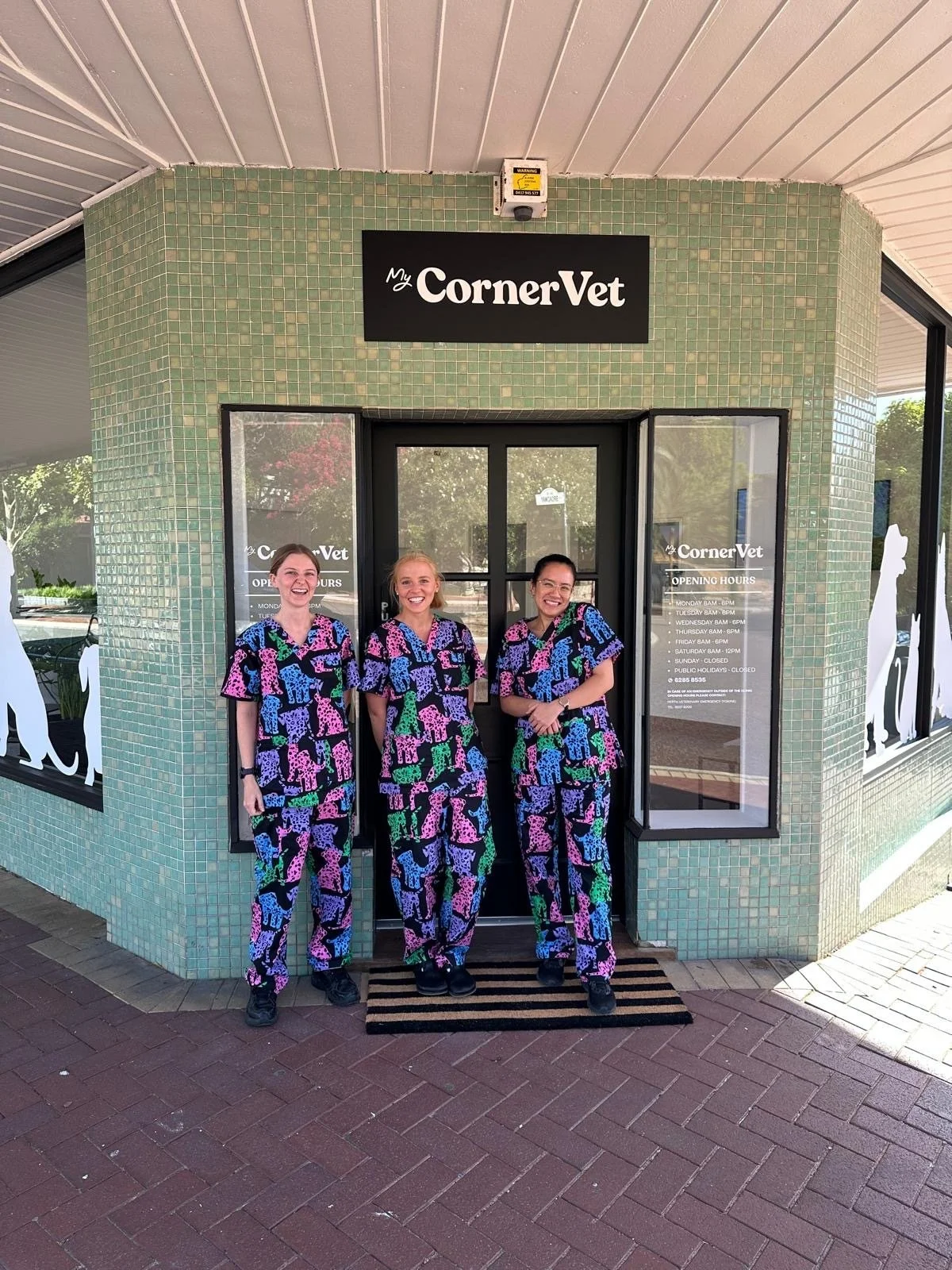Anxiety in Cats
Anxiety in cats is a common condition that can manifest as excessive fear, stress, or nervousness in response to various triggers.
What Is Anxiety in Cats?
Anxiety in cats is a common behavioural condition that can lead to stress-related health issues and destructive behaviors. Cats are creatures of habit, and changes in their environment, routine, or social interactions can trigger significant anxiety. While some cats may show mild unease, others can develop severe anxiety that affects their daily life and well-being.
At My Corner Vet Nedlands, we provide support and guidance to help your cat in the case of a suspected anxiety.
Signs Your Cat May Have Anxiety
Common symptoms of anxiety in cats:
🐾 Hiding more than usual (under furniture, in closets, or secluded areas)
🐾 Excessive grooming (can lead to bald spots or skin irritation)
🐾 Urinating or defecating outside the litter box
🐾 Increased vocalisation (excessive meowing, yowling, or growling)
🐾 Destructive behavior (scratching furniture, chewing on objects)
🐾 Aggression or withdrawal (towards humans or other pets)
🐾 Loss of appetite or overeating
🐾 Hypervigilance or easily startled
🐾 Excessive pacing or restlessness
What Causes Anxiety in Cats?
Several factors can contribute to anxiety in cats:
🐾 Changes in the home – Moving, renovations, new furniture, or changes in routine
🐾 New people or pets – The introduction of a new pet, baby, or houseguest can be stressful
🐾 Separation anxiety – Some cats become anxious when left alone for long periods
🐾 Lack of socialisation – Cats not properly socialized as kittens may develop anxiety
🐾 Previous trauma – Rescue cats or those with a history of neglect may be more prone to anxiety
🐾 Loud noises or unfamiliar sounds – Thunderstorms, fireworks, vacuum cleaners, or construction noise.
🐾 Health issues – Pain, cognitive dysfunction in older cats, or underlying health conditions .
When to See a Vet
If your cat is displaying persistent anxiety symptoms, a veterinary consultation is recommended, especially if you notice:
✔ Excessive self-grooming leading to hair loss
✔ Refusing to eat or drink
✔ Frequent urination or defecation outside the litter box
✔ Unusual aggression or extreme withdrawal
✔ Signs of illness such as vomiting, diarrhea, or lethargy
Your veterinarian will rule out medical causes of anxiety and may recommend behavioral strategies or treatment options.
Professional Anxiety Treatment at My Corner Vet
At My Corner Vet, we offer tailored anxiety management plans, including:
Environmental modifications
Adjusting your cat’s space to provide comfort and security
Pheromone therapy
Feliway diffusers, sprays, or wipes to create a calming atmosphere
Anti-anxiety medications or supplements
In severe cases, medications or calming supplements may be prescribed.
Behavioural modification
Positive reinforcement techniques and gradual desensitization
How to Prevent Anxiety in Cats
🐾 Provide a stable environment – Keep changes in the household minimal or introduce them gradually.
🐾 Ensure plenty of enrichment – Offer scratching posts, climbing trees, and interactive toys.
🐾 Encourage safe hiding places – Cats need secure, high-up spots where they can retreat.
🐾 Use pheromones – Feliway diffusers can help create a calming home environment.
🐾 Maintain a routine – Feeding, playtime, and interactions should be predictable.
🐾 Socialise kittens early – Exposing kittens to various experiences can prevent future anxiety.
🐾 Ensure adequate resources in multi cat household – at least 1 litter tray per cat, separate feeding areas.
You can take steps to reduce and prevent anxiety in cats by:
If your pet experiences symptoms of anxiety, call our vets for support and treatment.
Frequently Asked Questions
-
Anxiety can often be managed successfully, but some cats may need long-term strategies to stay comfortable.
-
Create a quiet, safe space, use pheromone diffusers, maintain a consistent routine, and provide mental stimulation.
-
Medication is usually considered for severe or chronic anxiety when other interventions do not work. Your vet can assess whether it’s necessary.
-
Yes, anxiety can develop at any age, especially due to health issues, changes in routine, or cognitive dysfunction in older cats.
-
Anxiety can lead to inappropriate elimination as a way of marking territory or expressing distress. A vet check is recommended to rule out medical causes.
The latest from My Corner Vet!
See our pet patients, happy clients, and behind-the-scenes moments from the clinic.
Follow Us on Socials!
Stay connected and never miss an update. Follow us on Instagram for tips, news, and adorable pet photos!
Book an Appointment at My Corner Vet
🐾 Support, guidance and treatment for cats suffering anxiety
🐾 Same-day appointments available
🐾 A caring, professional team
📍 Clinic Location: 134 Broadway, Nedlands, WA
📞 Call Us: (08) 6285 8535
📅 Online Booking: Book Now
If your cat shows symptoms of anxiety, and you have concerns, call us for support!
Local Vet for Local Pets
Conveniently located in the heart of Nedlands, My Corner Vet is here for you and your pets. Use the map to find us and plan your visit with ease!
Free parking is available for all patients, just a short 20-step walk to our welcoming waiting room.












